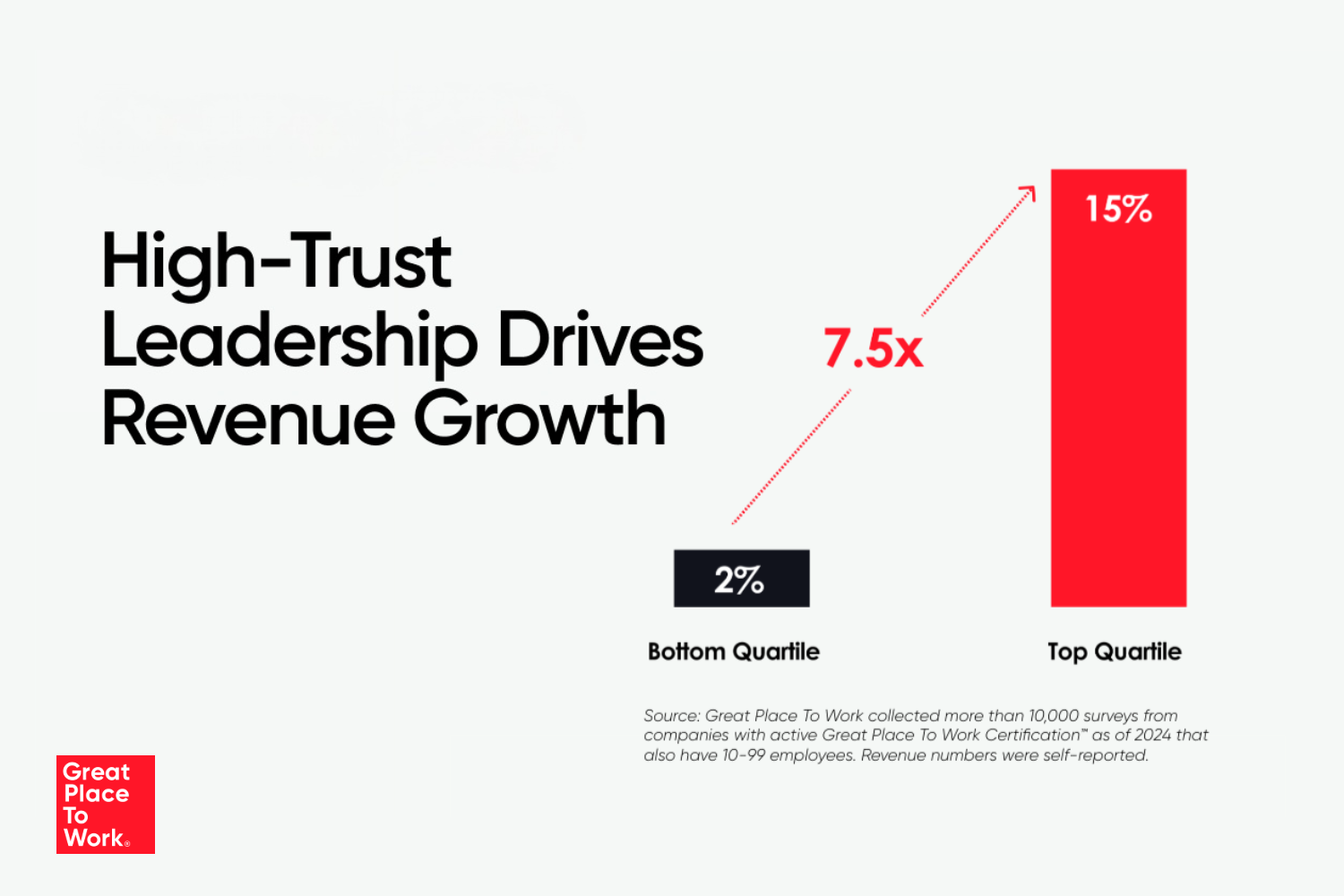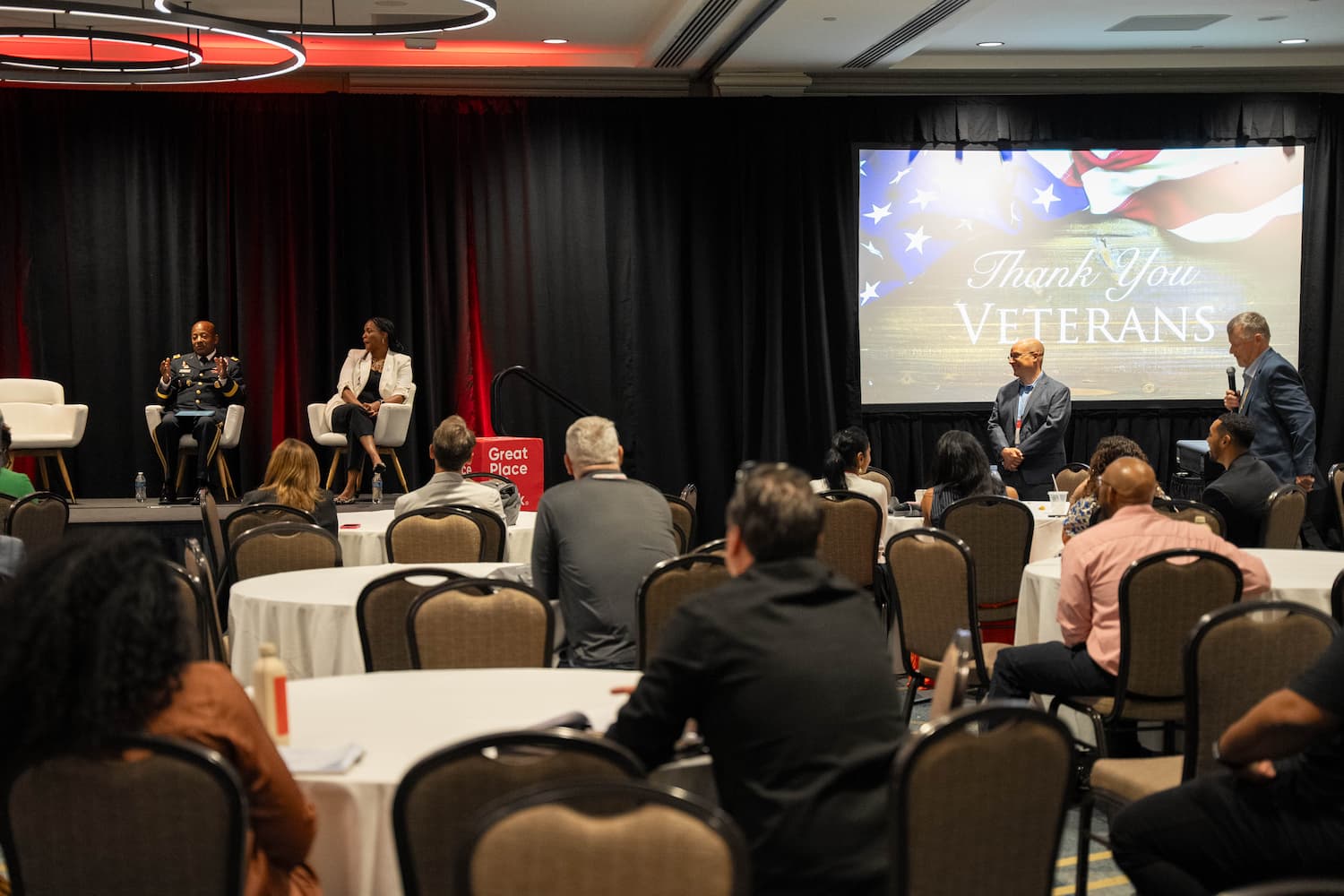Belonging, Caring , DEIB, Developing
Here’s how you can give these hardworking employees the best chance to succeed.
What does it look like to welcome refugees into the workplace?
If your company isn’t connecting with the more than 108 million people around the world who have been forcibly displaced, according to UN data, you could be missing out on invaluable talent.
These potential workers have unique characteristics and skillsets, forged by life experiences that few people can begin to imagine — skills that can have immense value in the workplace. You would be hard-pressed to find a more entrepreneurial or resilient person than someone who has had to completely uproot their lives and their family to start over in a new country.
However, employers should also consider how refugees might need extra support to succeed in the workplace, especially when first getting started. They often don’t speak the language and are navigating profound challenges around resettling their family in a new home.
Here are some ways great workplaces are helping refugees thrive, with takeaways for any company looking to make an impact:
1. Make a public commitment to hire refugees
Marriott International made a commitment in 2022 to hire at least 1,500 refugees in the U.S. by 2025.
The hotel chain supported this effort by creating a refugee recruitment program and developing resources for refugee applicants and partner organizations to help them navigate the hiring process. They also created an onboarding guide to ensure refugees received a welcoming and supportive experience when joining the Marriott team.
Each hotel property can bring the refugee hiring program to life in its own way, adopting practices and strategies that work for their people. Some of the initiatives different properties have introduced include onsite translators, prayer rooms, and resources to help refugee employees navigate public transportation.
2. Partner with external organizations
To support its efforts to hire and support refugees in the U.S., Hyatt partners with organizations like Welcome US, Refugee Council USA, and Talent Beyond Boundaries.
Companies can work with refugee organizations to organize job fairs, a common way that great workplaces report finding refugee talent that goes on to have an impact on the organization.
Hilton recruited a former U.S. military translator named Abdul at a job fair for Afghan refugees. Abdul, his wife, and three daughters fled to Northern Virginia after the Taliban took over the country in 2021.
Abdul now serves as the director of safety and security at Hilton McLean. “I love the environment of my job especially,” Abdul shared with ABC News. “And I am sure I will get more opportunities because this is a land of opportunities.”
Companies can find talent at other events, too. Marriott connected with the Safis — a family of eight who had relocated from Afghanistan — at an event helping refugees settle into new homes in Washington, D.C. The two oldest Safi cousins were invited to interview for jobs at a Marriott hotel, eventually becoming associates and starting their careers in the hospitality industry.
3. Provide holistic support for refugee employees
Great workplaces take the time to understand the unique challenges facing their employees and find ways to help them overcome those roadblocks.
Refugees can face unique challenges when navigating their new careers in a new country, from language barriers to transportation issues and insufficient childcare support. Hyatt says it addresses these needs by offering English lessons, transportation assistance such as a free bus pass, flexible work schedules to help navigate transportation or childcare needs, and more.
4. Enable current employees to volunteer their time and resources
Companies can increase their impact by enabling their employees to volunteer and provide support.
Jamf, a global software company, didn’t have employees in Ukraine at the start of the war, but with 165 employees in neighboring Poland, the company saw an opportunity to help those workers take action. Many of their Polish colleagues opened their doors to Ukrainian families, and volunteered at the border helping with supplies and resources.
The company reimbursed employees for expenses incurred while assisting refugees, including costs for gas, food, lodging, and more. Jamf employees were also allowed to take unlimited volunteer time off to support Ukraine refugees.
5. Break down barriers outside your organization, as well as within
At Accenture, efforts to help refugees develop skills and careers isn’t just focused internally. The global consulting firm also works to help refugees grow and build careers across industries as part of its work with Upwardly Global.
Even when you don’t have a job opening, there are ways your organization can get involved to help refugees find work and build new lives.
Get more insights
Learn how great workplaces are building trust with employees and driving business success. Sign up for our workplace culture newsletter.











